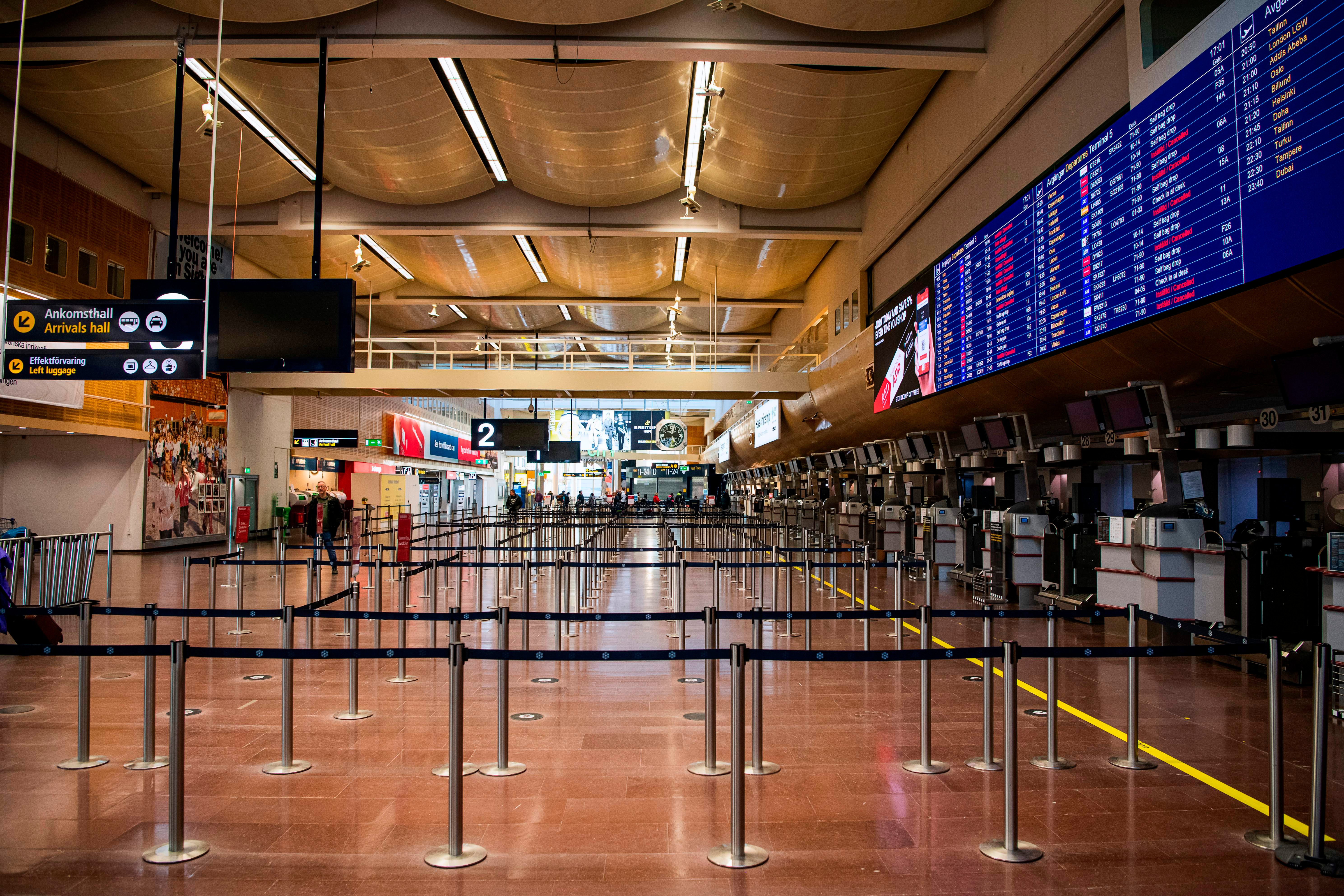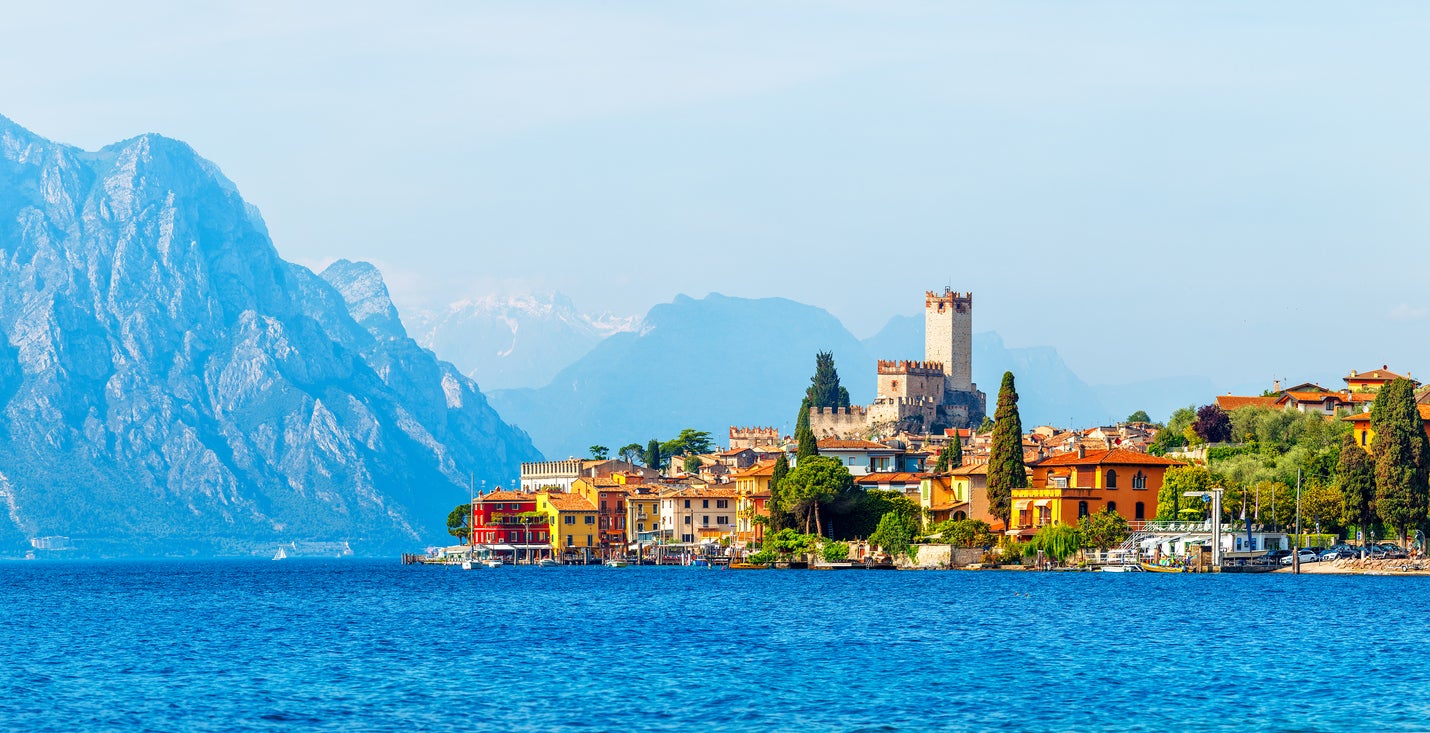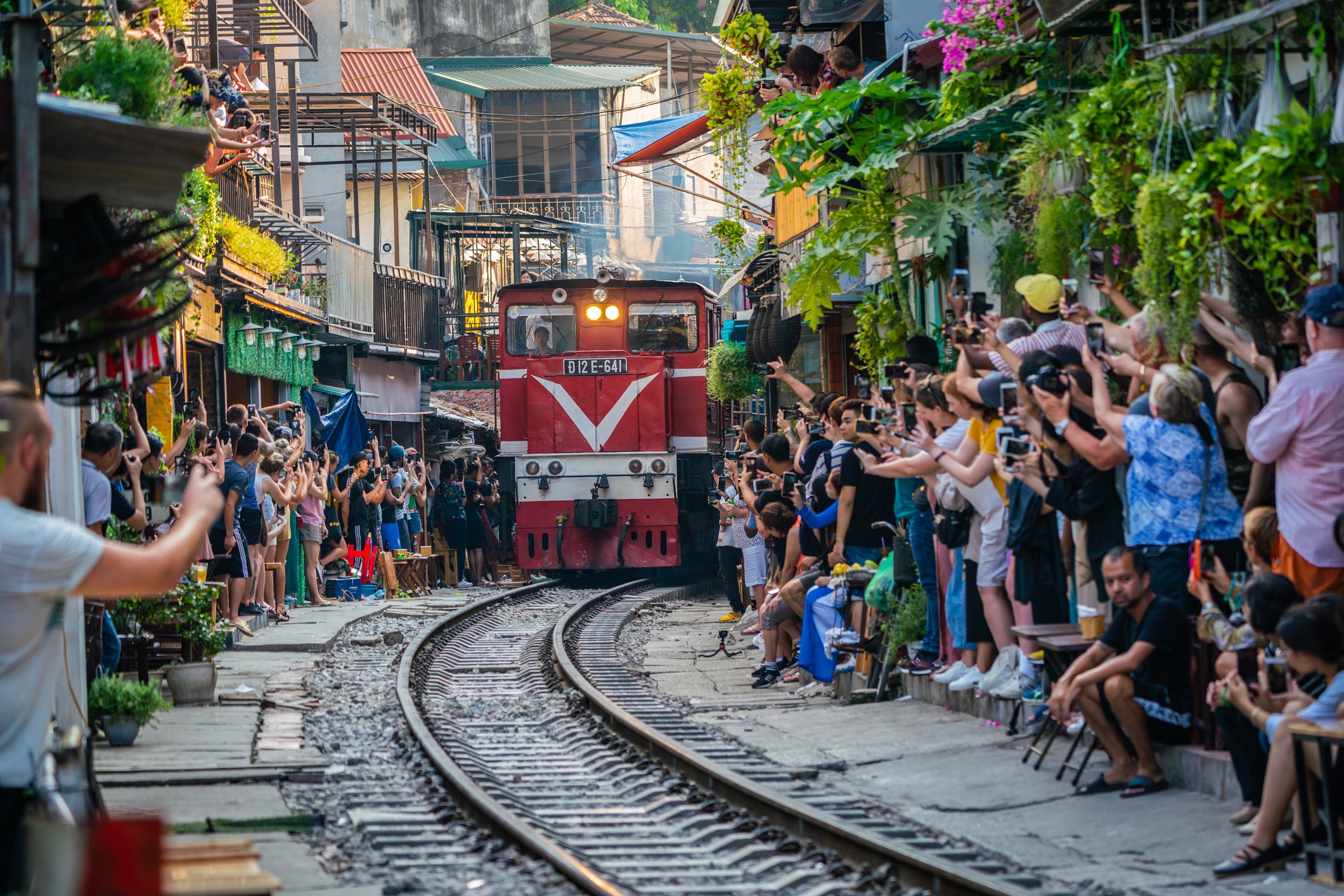Plain speaking? Here’s how to transit through an airport
Simon Calder answers your questions on airport taxis, protests in Morocco, choosing between Japan and Vietnam, and aviation jargon


Q I need a wee bit of help. Can you tell me what “transit” means in relation to flights? I’ve a Edinburgh-Munich flight booked with Norwegian Air, however it transits in Arlanda.
Jordan H
A Thank you for an important reminder that aviation could offer much more clarity to passengers. In your case, it would have been more helpful for the airline to tell you: “Change planes and go through passport control at Stockholm’s Arlanda airport.”
You have bought, I hope for an attractive fare, a journey between the capitals of Scotland and Bavaria. It is on an airline, Norwegian, that is now firmly focused on a network to, from and within Scandinavia (previously the carrier flew from the UK direct to a wide range of destinations worldwide).
Any flight between Edinburgh and Munich will necessarily be via one of the “hubs” – the airports where Norwegian has based plenty of planes, and from which destinations are served like spokes. For Norwegian, these hubs are Oslo, Copenhagen and, in your case, Arlanda airport, north of Stockholm.
The standard transit experience at most international hubs is to leave one plane, go and sit in a transit lounge, and board a second flight. This happens at airports such as Amsterdam, Paris CDG and Frankfurt for British travellers heading beyond Europe – to Asia, Africa or the Americas.
Because you are staying within the European Union, your transit experience will be rather different: Stockholm Arlanda will be where you enter the EU (and the wider Schengen area). After you clear passport control, your connecting flight to Munich will be effectively a domestic flight, with no immigration formalities at either end of the route (though you will still need to show a passport as identification before your onward flight).
Your baggage, meanwhile, will hopefully be tagged through to Munich – but do enquire whether you are expected to pick it up in Stockholm and re-check it for the flight to Germany. Personally, my intention always to travel only with cabin baggage is intensified if a transit stop is involved. You might connect perfectly happily while your checked luggage misconnects.

Q My wife and I are off to Malcesine on Lake Garda for a week in June. We fly to Verona. I was assuming we’d get a taxi to Malcesine but the cost is immense: around £200 each way. Can you help with trains or buses instead? Our flights arrive at 11am on a Saturday and leave at 12.30pm on the following Saturday.
David M
A As it happens, I hope to visit the pretty town on the east side of Lake Garda next week, en route to Verona airport. I have no intention of paying anything like £200 for a journey of under 50 miles. A perfectly reasonable sequence of buses and a train will allow you (and me) to make the journey, particularly with the civilised flight times.
From the city’s Catullo airport, the reliable Verona Airlink bus 199 runs every 20 minutes to Porta Nuova railway station. Assuming the flight is on time, you should comfortably make the 11.30am departure – arriving 15 minutes later.
The onward train to Peschiera del Garda, at the foot of the lake, takes only 13 minutes; it is a regional train, with no reservation necessary, though you might want to download the excellent Trenitalia app so you can buy tickets online without any hassle.
From Peschiera del Garda railway station, bus 483 runs hourly to Malcesine, taking 72 minutes. The total journey cost is likely to be around €20 (£17) each. If the connections don’t work perfectly, you can enjoy a coffee at each of the stops, happy in the knowledge you are travelling for one-sixth of the taxi fare.
At some stage in the summer, possibly as early as 10 June, the direct seasonal Verona airport-Garda bus 485 may be running again, in which case you can take it to the final stop, at the bus station in the town of Garda, and connect on from there.
Having said all of that: ahead of your return to the airport, if you are staying in a hotel I would ask the staff at reception to find out if a local taxi driver might offer a better deal and if any other guests are heading for the airport on the morning you plan to leave. If another couple plan to fly from Verona at about the same time, and a taxi is available for, say, €175 (£150), you might decide that £75 for the pair of you is a reasonable sum for a trip direct to the airport.

Q I am booked to travel to Morocco next week but am very concerned about the latest Foreign Office travel advice update. I read Morocco has “a heightened chance of demonstrations and protests”. Will my travel insurance be valid if the Foreign Office is so concerned, and should I cancel my trip?
Name supplied
A I would love to be going to Morocco a week from now, and I confidently predict you will have a great holiday. Late April is an ideal time to enjoy the country at its springtime best, whether you are exploring Marrakesh or Fez, hiking in the Atlas Mountains or indulging at a resort beside the Atlantic. In the course of many visits to Morocco over the years, regardless of international tensions, I have always found the nation reassuringly welcoming.
The Foreign Office updated its travel advice at the weekend simply to note: “On 13 April 2024, Iran carried out military action against Israel.” The reference to “demonstrations and protests” was in the previous edition of the advice. Very similar advice is given for Tunisia, Egypt and other countries across north Africa and the Middle East. I believe it is in response to the increased tension that has prevailed since the Hamas attack on Israel on 7 October 2023 and the Israeli response in Gaza. I think it is one of those vague and unhelpful assertions that serves only to stir alarm – as, understandably, it has with you.
To put your mind at rest: the only evidence I have found of protests recently was two weeks ago specifically at the US embassy in Rabat and the American consulate in Casablanca, which seem to have passed off peacefully.
The Foreign Office also warns: “Terrorists are very likely to try to carry out attacks in Morocco.” But the official advice stops well short of saying you should not go, so standard travel insurance remains valid. In the summer of 2024, expanded air links make it likely that more British travellers than ever will visit this beautiful country. All the more reason for getting in early, next week.

Q Which do you recommend out of Japan or Vietnam for a two-week holiday?
Frances F
A Both east Asian nations are superb for a stay of at least two weeks. They offer a wealth of attractions, from exciting cities and exotic culture to lonely landscapes and seascapes. Each offers excellent value: the Japanese yen’s slump has kept pace with sinking sterling, while Vietnam (in common with neighbouring countries) has always been a low-cost destination.
I suggest you make your decision based on when you plan to travel. I like Vietnam in February, March and April, when rain is minimal across the country. Overall, I find the weather across Japan best in May and June (except in the far south islands such as Okinawa), with July also good if you are keeping north.
In terms of an itinerary: for Vietnam, organise an “open jaw” ticket flying out to Hanoi and back from Ho Chi Minh City. The capital, Hanoi, is much calmer and a better location for finding your feet. Explore Halong Bay: this Unesco heritage site is the leading attraction in northern Vietnam, with dramatic limestone outcrops soaring from the water. Then travel from north to south by rail, pausing at locations such as the ancient capital of Hue. Finish in Ho Chi Minh City: after 12 days or so, you should be fully attuned to the metropolitan mayhem, and find it fun rather than terrifying.
For Japan, you could easily spend two weeks in and around Tokyo. But escape at least as far as Hakone national park for a close encounter with nature and art. If possible continue to the dazzling beauty of Kyoto, and possibly the city of Hiroshima for a deeper understanding of the 1945 atomic bomb attack. Again, an open-jaw itinerary (flying into Tokyo but out of Osaka or Fukuoka) will help you maximise your time and minimise your spend.
Email your question to s@hols.tv or tweet @SimonCalder






Join our commenting forum
Join thought-provoking conversations, follow other Independent readers and see their replies
Comments